Chameleon EMCOMM II V2
In stock
The Chameleon EMCOMM II Antenna has been specially designed for backup emergency HF system or permanent installation. The integral broadband impedance matching network (transformer 5:1) allows broadband antenna tuning.
211.09 $
In stock
Chameleon EMCOMM II is the perfect backup antenna for apartments, condominiums, homeowners associations, deed restrictions and CCRs (Covenants, Conditions & Restrictions), ARES, RACES, MARS, EMCOMM, NVIS, First Responders and especially for Emergency Preparedness.
The unit is totally waterproof. The antenna is 18m long and covers 6M to 160M. An external tuner might be required.
The antenna will perform very well with a sloper or an inverted “L” configuration. For a NVIS configuration (40M – 80M) the antenna must be installed horizontally with the ground and elevated between 3m and 4m high.
The CHA EMCOMM II do not required any ground-plane but will perform better with one. A ground terminal is available for that purpose.
Specifications:
Frequency: 6M – 160M
Power: 500W SSB or 250W CW
Length: 18 meter Tinned Copper KEVLAR PTFE (Teflon) (-70°C to 150°C) wire
Weight: 0.9 kg.
The antenna system consists of:
1 X CHA EMCOMM II matching box
1 X 18 meter Copper Clad KEVLAR Wire
Sloper Installation
The sloper is considered the most unusual antenna system and can be difficult to get to work properly. The sloper may exhibit some gain in one direction, but usually has omni direction pattern. There are two types of sloper, the full sloper, really a dipole mounted with one end higher than the other. The half-sloper (EMCOMM II) is fed at one end with a “ground system” or counter poise provided by either physical ground if fed at lower end of sloper. If the sloper is fed at the top, then other factors provide the “ground”. In most cases, a sloper mounted on a tower, then the tower and importantly, the beam mounted on top, act as the counterpoise.
One successful version of the sloper (most folks call any kind of sloper simply a “sloper” regardless of its type) is one that is fed with coax. The antenna is fed from the top and installed on a tower with a beam on top. The center conductor of the coax feeds the sloper wire and the shield is carefully bonded to the tower structure. In addition the beam, rotor, and mast are electrically bonded to the tower (here a heavy braided strap connecting the mast to the tower is recommended). The theory is that the sloper is fed at the top and the high current point is high just under the beam, leading away from the tower.
The sloper has been reported to be hard to get to work in some cases. When it works, its performance when used with a tower and a beam is very good. Considering the cost of materials (assuming the tower is in place already) the sloper should be considered.
Inverted “L” Installation
This is most likely the least expensive high performance antenna you can erect for 40M, 80M and 160M (limited performance). It is worth investigating since it needs only one high point in the relative clear to be effective (the horizontal far end can be at a lesser elevation, details later). Most likely you will need to use an external antenna tuner.
The main radiating component of the “L” is the vertical wire, that’s what makes it a very good ground-wave and DX antenna. So it would be good if this can be kept in the clear, or several feet away from your tower, and of course, as high as you can make it. The horizontal part may slope downward, or bent several times to accommodate any obstacles. Keep in mind, the more you bend the element back on itself, the more of the radiated signal is canceled out.
Sometimes it is not possible to have the vertical section longer than the horizontal section. This will result in more of the signal being radiated skyward to which NVIS (Near Vertical Incident Skywave) will occur. NVIS is a propagation method that provides usable signals in the range between ground wave and skywave distances (usually 50 to 650 km).
Before we go any further, this antenna requires a robust ground system. If your ground is poor, the antenna efficiency will be poor, and you will be troubled with RF in the shack.
The radiation pattern is omni directional, with a possible minor lobe in the direction of the horizontal portion.
Based on 0 reviews
Be the first to review “Chameleon EMCOMM II V2”
You must be logged in to post a review.

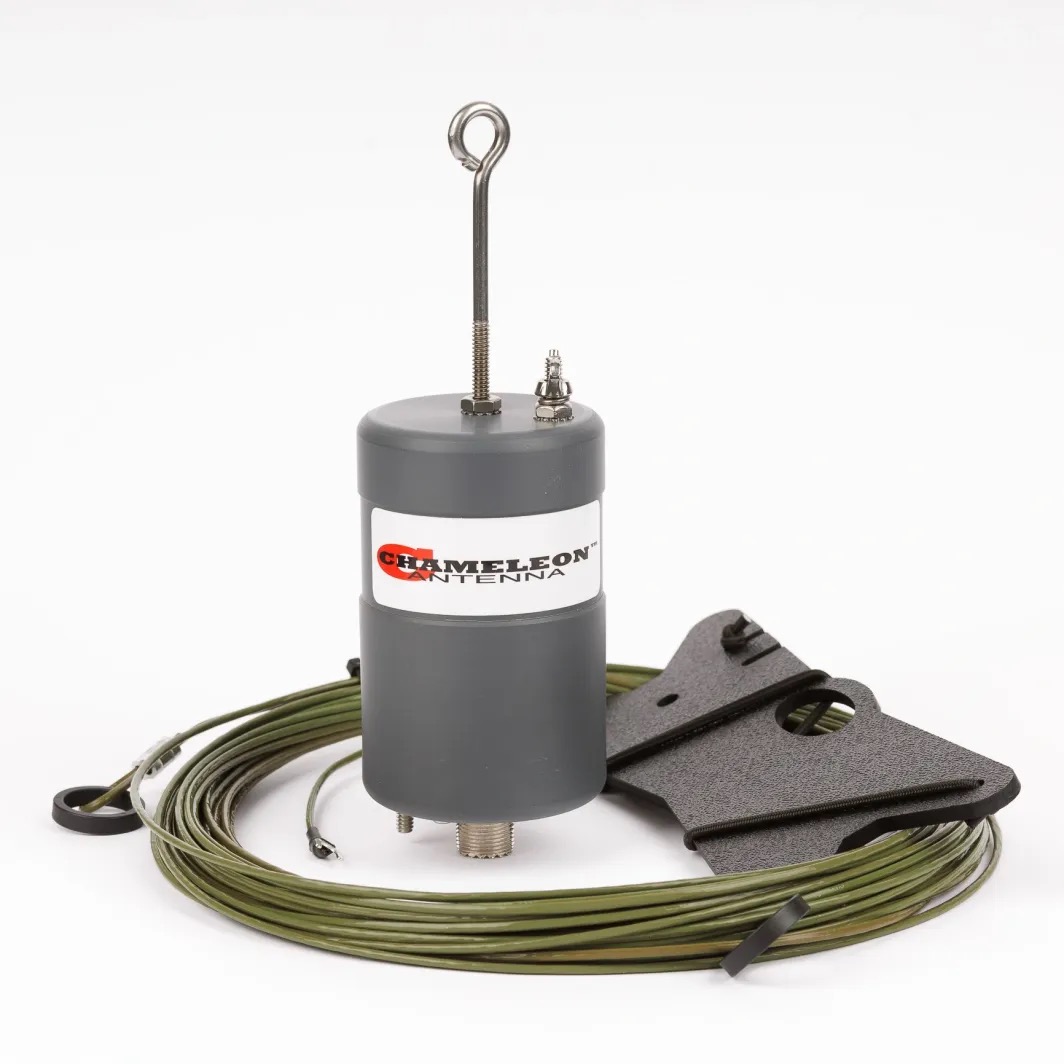
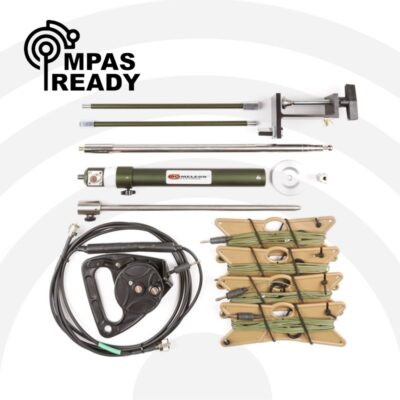
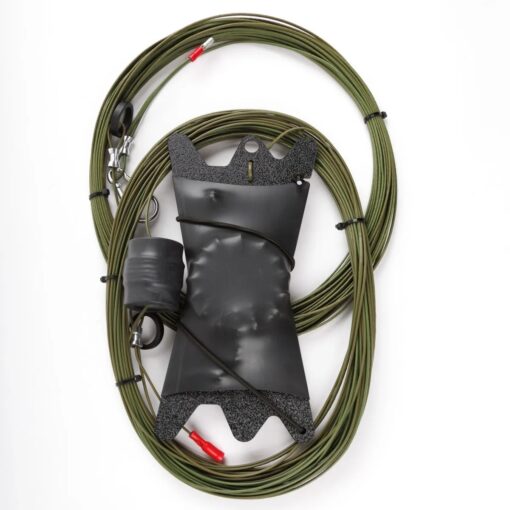
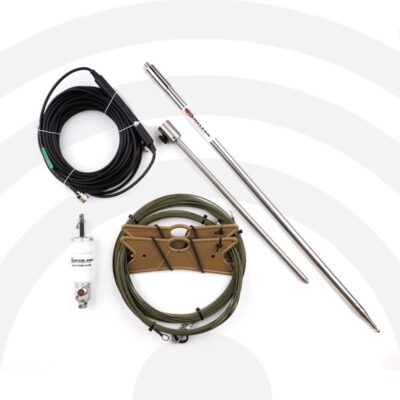
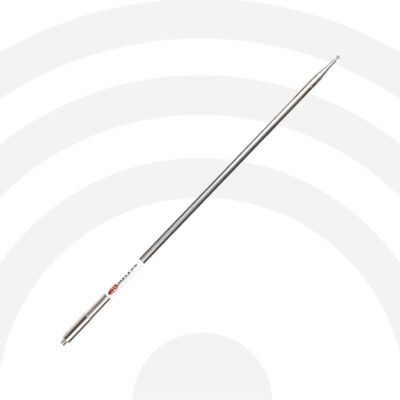
There are no reviews yet.